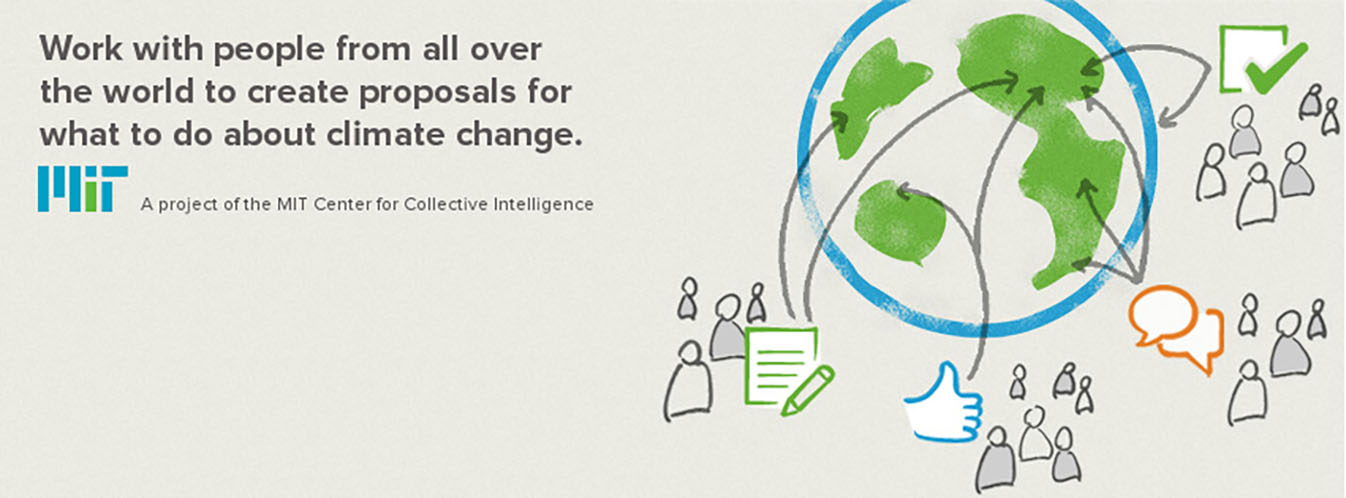
MIT’s Climate CoLab, a quickly growing community of nearly 90,000 members worldwide sourcing innovative proposals on how to address climate change, is seeking volunteer Fellows. In 2017, Climate CoLab is running a suite of online contests on topics such as energy supplies, carbon pricing, land use change, buildings, adaptation, shifting behaviors and more. Fellow roles available and how to apply below:
 Contest Fellows are graduate students, Ph.D. candidates or professionals with expertise in topics related to climate change, and are eager to support a diverse online community in promoting and developing new, creative solutions. They work with senior experts, explore issues of interest to them, connect with relevant organizations and interested citizens internationally, and take a leadership position in this fast-growing and innovative project. This role requires a strong and ongoing commitment for the duration of the contest (a minimum of 2 - 3 hours/week between May – December 2017). Fellowships can be completed virtually and are unpaid. MIT's Climate CoLab is recruiting for two types of contest fellows: outreach and evaluation. For details on each of these roles, and to apply before April 30, please click here.
Contest Fellows are graduate students, Ph.D. candidates or professionals with expertise in topics related to climate change, and are eager to support a diverse online community in promoting and developing new, creative solutions. They work with senior experts, explore issues of interest to them, connect with relevant organizations and interested citizens internationally, and take a leadership position in this fast-growing and innovative project. This role requires a strong and ongoing commitment for the duration of the contest (a minimum of 2 - 3 hours/week between May – December 2017). Fellowships can be completed virtually and are unpaid. MIT's Climate CoLab is recruiting for two types of contest fellows: outreach and evaluation. For details on each of these roles, and to apply before April 30, please click here.
 Impact Assessment Fellows take a leadership role in quantitatively analyzing and certifying the climate impact of proposals submitted to the platform. MIT's Climate CoLab is accepting expressions of interest from graduate students or professionals with experience in computer-based modeling, and/or an interest in mentoring others in these topics, who can devote 5 hours per week from September to November 2017. Fellows will receive training. Positions can be completed virtually and are unpaid. For more details and to apply, please see here.
Impact Assessment Fellows take a leadership role in quantitatively analyzing and certifying the climate impact of proposals submitted to the platform. MIT's Climate CoLab is accepting expressions of interest from graduate students or professionals with experience in computer-based modeling, and/or an interest in mentoring others in these topics, who can devote 5 hours per week from September to November 2017. Fellows will receive training. Positions can be completed virtually and are unpaid. For more details and to apply, please see here.
The goal of the Climate CoLab is to harness the collective intelligence of thousands of people from all around the world to address global climate change.
Inspired by systems like Wikipedia and Linux, the Massachusetts Institute of Technology (MIT) Center for Collective Intelligence has developed this crowdsourcing platform where people work with experts and each other to create, analyze, and select detailed proposals for what to do about climate change.



